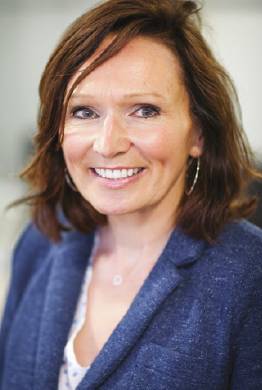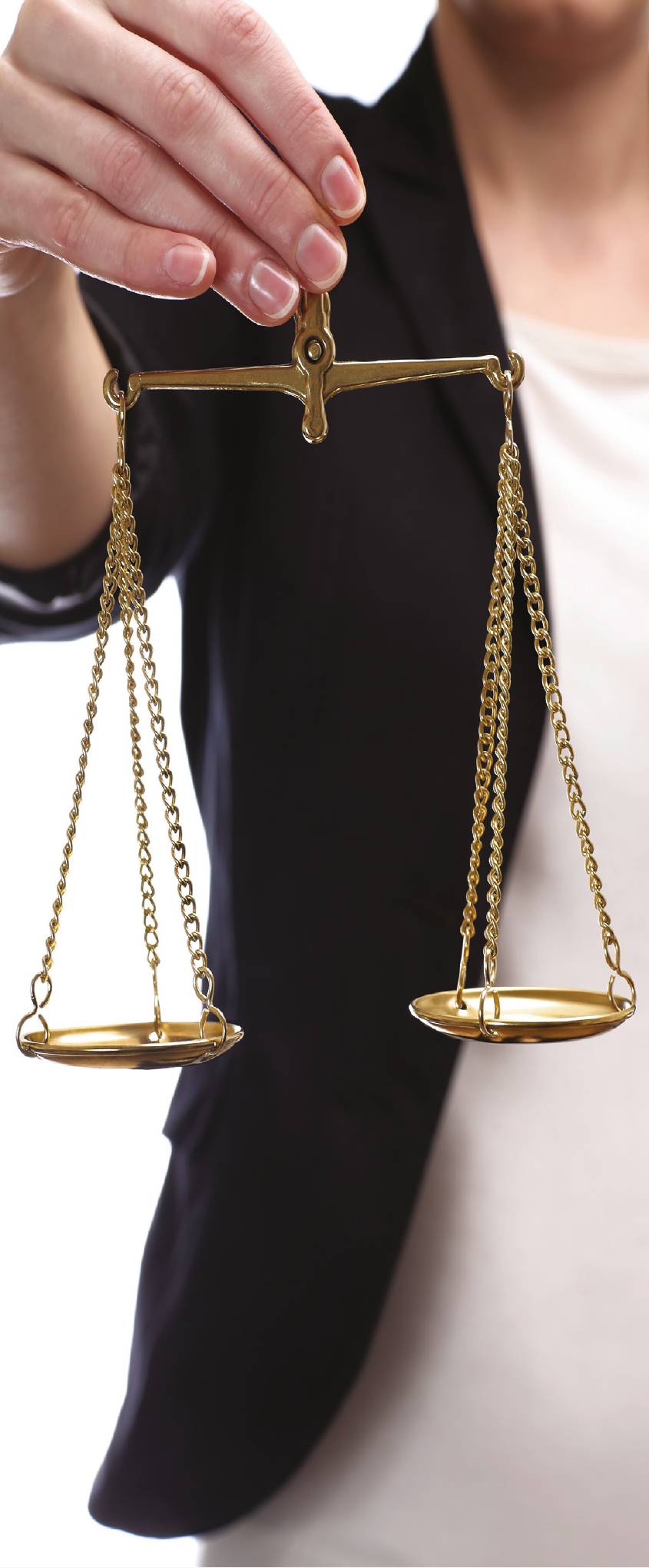Legal profession
Association of Women Solicitors (London): promoting and supporting women in law
The Association of Women Solicitors (AWS) London, which celebrates its 25th anniversary this year, invites CILEx members to join its ranks.

About the author
Angela Hogan is chair of AWS (London).
The first point that I want to make from the start is that, notwithstanding its name, AWS (London) is open to CILEx members. Please, as you read this, bear that in mind and consider becoming a member or, if not a member, come to an event of ours. I would love to see more CILEx members, and will personally give each new member a warm welcome and introduction.
The Association of Women Solicitors (London) was formed in 1992. We are so proud to be celebrating our 25th anniversary this year. It is an excellent time to look back at how we were created and our achievements.
At the time we were formed, there was also a national Association of Women Solicitors, itself created (it is thought) from another organisation called the ‘1919 Club’ for short, which emerged following the change to the law that gave women the right, for the first time, to qualify as solicitors. It was the Sex Disqualification (Removal) Act (SD(R)A) 1919 that enabled women to qualify as solicitors; the first solicitor (Carrie Morrison) was admitted in 1922, and she was one of the founding members of 1919 Club. This informal group, formed in around 1923, was named after the SD(R)A – hence the insertion of ‘1919’ into its name.
In 1969, the name was changed to ‘The 1919 Club – The Association of Women Solicitors’, and then later to just ‘The Association of Women Solicitors’. So sophisticated and well developed was the national AWS, that it even produced a glossy magazine called Link, which some may remember.
By 1992, the number of women qualifying as solicitors had increased dramatically. Independent regional groups were established, one of which was the London branch of the AWS. It was formed to cater specifically for London women solicitors wishing to network and socialise locally in the London area, although it has always been possible for anyone to join wherever they were located.
The relationship between the national and the London organisation was close. Over the years, the national AWS, although a separate organisation, moved increasingly towards working with the Law Society, including on issues such as lack of women in judicial roles, women reaching partnership level in private practice, and pay inequality. As a group formally recognised by the Law Society, it was entitled to receive financial support.
However, in 2013, the Law Society set up its own women lawyers’ group and withdrew funding from all previously external recognised groups, including the national AWS. Unfortunately, this led to the dissolution of the national AWS. Happily, the AWS (London) continued. There is also a thriving Manchester branch.
We are run by a committee, of which I am chair, of around 15 members at any one time. This committee meets on the first Tuesday of every month (except in August when there is no meeting). The first meeting of the committee, in 1992, was at the swish premises of the beautiful Art Deco style and distinguished Lansdowne Club in Mayfair. Since then, we have generally
met at the offices of one or other of the committee members in central London, ie, at Slater and Gordon or Anthony Gold, etc.
There have been just two administrators, Linda Davies (also a solicitor and committee member, from 2012 to date) and Sandra Dawson (from 1993 to 2012). They have been vital in maintaining the historical knowledge of the organisation, and in keeping close and warm relationships with new and longstanding members/partners.
AWS (London) has attracted members from all sorts of areas of the legal profession: in house, private practice, the public/voluntary sector, higher education and the judiciary. Our founding chair, Alison Parkinson, was head of legal services (property) at Network Rail. Another member, Madeleine Heggs, was a social security commissioner from 1981 to 2002 (the first woman to be appointed to this role) and a child support commissioner from 1993 to 2002. It is wonderful that she continues to be an active member of AWS (London), and is a regular at our summer parties and other events.
The number of AWS (London) members swelled for many years due, primarily, to the Law Society providing us freely with the names of women qualifying as solicitors as soon as they entered the profession. When the Data Protection Act 1998 was introduced, this helpful practice stopped and obtaining new members is more of an active step that has to be taken continuously through other means, such as articles in the Law Society Gazette, our internet presence, via LinkedIn and Twitter and by word of mouth. We have around 250 paying members, and another 400 or so who are on our contact list.
We have expanded our membership, had letters printed in the Gazette and, at our request to the Ministry of Justice, two of our members have been appointed honorary QCs in recognition of the wider benefit they have brought to the legal community. We hope to have even more good news on this front later this year or early next year.
We have an annual dinner in March, immediately after our AGM, to which all members are invited, along with any guests they wish to bring, and summer parties at fantastic venues, with some fascinating speakers on a huge range of subjects. Previous speakers have included current MPs, members of the House of Lords, QCs, and writers.

The role of chair rotates every year, so that each new chair holds office for just 12 months. I became chair this year, and I want to raise the profile of our organisation still further by taking a stance on issues affecting women in the profession and by promoting fairness in recruitment and employment practices. This is why I have made a special effort to complain to City firms about the striking lack of diversity in their partnership appointments (in the latest round of partnership appointments at Allen & Overy, 92% were male) and why we had a presentation, from Allen & Overy, at our meeting in June this year to explain the firm’s position and the measures that are being taken to address the problem. It is also why I have tried hard to create links with other organisations similarly concerned with diversity, such as Justice, Liberty, and the Fawcett Society (which campaigns for gender equality, and has had great success with the recent introduction of gender pay gap reporting requirements for businesses) and the International Bar Association (IBA).
We met recently with Isabel Bueno, chair of the IBA’s Women Lawyers’ Interest Group, to talk about how AWS (London) could work with the IBA to deliver an interesting panel discussion on diversity issues when the annual IBA World Women Lawyers’ Interest Group Conference takes place in 2018, which we are hoping will be in London. We are encouraging the conference to discuss the lack of women in the senior judiciary and partnerships, pay inequality, high attrition rates, and the impact of austerity and the Solicitors Regulation Authority’s (SRA’s ) regulatory changes, as well as the slightly lesser-known initiatives, for example, to encourage organisations to recruit women who have taken an extended career break through returnships, the lack of proper coverage of women’s issues in the legal press and the challenge to equality laws caused by Brexit.
We have a great relationship with other women’s lawyers’ groups, such as the Women in Law London Network and the Association of Women Barristers, with which we share event, lobbying and consultation feedback to central government (see recent feedback on pilot schemes to introduce late night courts).¹
We publish a newsletter to keep our members up to date with events, and press releases and interviews with key figures in the legal profession.² We run a series of social events throughout the year: trips to the ballet, drinks parties and dinners. In July, we invited our members and their guests to a day at Lords’ to watch the final of the International Cricket Council 2017 Women’s Cricket World Cup. We also host serious events, such as coaching sessions for aspiring partners and employment seminars, and debates on whether there should be quotas in the judiciary, on diversity in the profession (in conjunction with the SRA), and on the effect of Brexit. In addition, we are just about to host an event on refugees in Calais when we will hear from a journalist who gave up her career to work with an organisation called ‘Help Refugees’. The Law Society acknowledges our status and standing by consulting with us on policy, as does the SRA. Membership (which is normally £35 per year) is free to those qualifying this year as a solicitor, barrister or Chartered Legal Executive. And to make it simple, we are happy to accept those who expect to qualify this year: there is no need to wait until the actual date of qualifying. AWS (London) will also give two years’ free membership to this group that are about to qualify. We hope and expect that having been members for two years, they will want to continue.
To celebrate our 25th anniversary, we ran an essay competition for the first time in our history, which was open to CILEx members (see (2017) July CILExJ p5). The choice of subject areas were domestic violence and parents’ rights to choose the medical treatment of their child. It was possible to enter the competition provided non-members become members at the time of submitting their essay.
The Essay Competition prizes were announced at the AWS Summer Party on 3 August 2017. Dame Linda Dobbs, a former High Court Judge and the first black woman to hold senior judicial office in England and Wales, presented Polly Calver with the first prize of £1,500 and Eirian Whitehead with the second prize of £500.
My aim this year is to treble our membership from around 250 to 750. Please help us reach that target to bring on AWS (London) as an even more vibrant and interesting organisation. We are much more likely to become that organisation if you join us.
1 'AWS response to the pilot of late night courts', AWS (London) press release, 3 May 2017, available at: http://awslondon.co.uk/press-releases/aws-response-to-the-pilot-of-late-night-courts
2 Available at: http://awslondon.co.uk/newsletter
- Anyone interested in joining AWS (London) should e-mail : AWSlondon1@gmail.com, telephone: 07760 272 809, or write to: 74A Seven Sisters Road, London N7 6AE